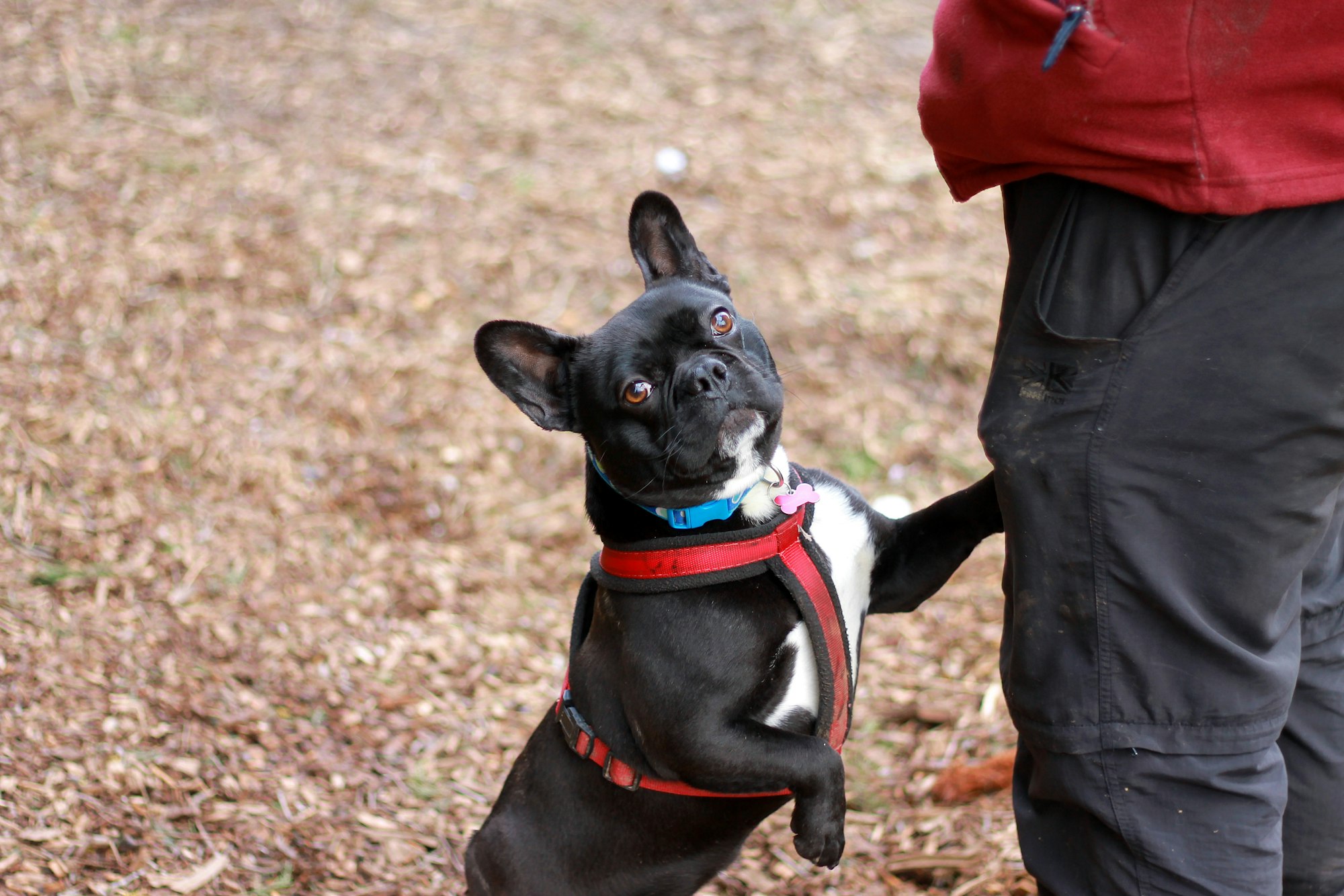Bringing a rescue dog into your home is a rewarding experience. In this guide, we'll explore why rescue dogs make excellent companions, especially for first-time owners.

Understanding the World of Rescue Dogs
Rescue dogs, with their soulful eyes and often untold stories, constitute a unique and diverse world within the realm of canine companionship. Delving into this world requires a nuanced understanding of the challenges these dogs have faced and the incredible resilience they embody.
Unraveling the Rescue Dog World
Rescue dogs come from various backgrounds, each with its own set of circumstances. Some have experienced neglect, abuse, or abandonment, while others might be victims of unfortunate circumstances such as changes in their owners' lives. Understanding the varied pasts of these dogs is crucial in providing them with the care and support they need.
Navigating through rescue organizations, shelters, and foster networks is the first step. Each organization operates differently, and knowing their protocols helps in making an informed decision. Whether it's a local shelter, breed-specific rescue, or a national organization, getting acquainted with their processes sets the stage for a successful adoption journey.
The Myths and Realities of Rescue Dogs
Rescue dogs often carry a stigma that they are damaged goods or inherently problematic. However, dispelling these myths is essential. Many rescue dogs are not only resilient but also highly adaptable. They bring with them a profound sense of gratitude, forming an unbreakable bond with their new owners.
Understanding the realities of adopting a rescue dog involves acknowledging that they may have quirks or fears stemming from their past. However, with patience, love, and consistent care, these challenges often transform into endearing traits that make each dog unique.
Choosing the Right Rescue Dog
Selecting a rescue dog is a process that requires careful consideration and a deep understanding of both your lifestyle and the dog's individual needs.
Matching Personalities: Finding Your Canine Soulmate
Rescue dogs, like any other dogs, have distinct personalities. It's crucial to match their temperament with your own. If you lead an active lifestyle, a high-energy dog might be an excellent fit. Conversely, if you prefer a more relaxed atmosphere, a calm and easygoing dog could be the ideal companion.
Visiting the rescue organization and spending time interacting with potential furry friends is invaluable. Observing how a dog reacts to various stimuli provides insights into their character and compatibility with your lifestyle.
Considering Size and Space
The size of your living space is a vital factor in choosing a rescue dog. Larger breeds may thrive in spacious homes with yards, while smaller dogs or those with lower energy levels might be better suited for apartments.
Understanding the physical requirements of a dog ensures a harmonious living arrangement, preventing unnecessary stress for both you and your new companion.
In the world of rescue dogs, the process of choosing the right one involves a delicate balance of empathy, practicality, and a genuine desire to provide a loving home. It's not just about finding a pet; it's about forging a lasting connection that transforms both your lives for the better.
Preparing Your Home for a Rescue Dog
Welcoming a rescue dog into your home is a significant step that requires thoughtful preparation. Creating a safe and comfortable environment sets the foundation for a smooth transition and a strong bond with your new furry friend.
Creating a Safe Haven: Dog-Proofing Your Space
Before your rescue dog arrives, it's essential to evaluate your living space from a dog's perspective. Identify potential hazards such as toxic plants, accessible electrical cords, or items that could be harmful if ingested. Dog-proofing your home creates a secure environment and minimizes the risk of accidents.
Invest in sturdy dog gates to designate specific areas if needed, providing a safe space for your new companion to explore gradually. Removing items that could be tempting but harmful, such as shoes or small objects, is an important precaution.
The Essentials: Must-Have Items for Your Rescue Dog
Ensuring that you have the necessary supplies is crucial for a smooth integration. From a comfortable bed and appropriate interactive dog toys to food and water bowls, having these essentials ready demonstrates your commitment to your new dog's well-being.
Consider the dog's age, size, and any specific needs when selecting items. Having a designated feeding area and a cozy spot for your dog to rest establishes routines and helps them feel secure in their new home.
Building Trust and Bonding
Building trust with a rescue dog is a gradual process that requires patience, understanding, and a genuine desire to connect. Trust is the cornerstone of a strong bond that will make your relationship with your rescue dog fulfilling and harmonious.
Patience and Understanding: The Key to Building Trust
Rescue dogs may have experienced trauma or neglect, making it crucial to approach them with patience and empathy. Allow your new companion to acclimate to their surroundings at their own pace, avoiding overwhelming situations. Be patient as they learn to trust you and their new environment.
Understanding their body language is essential. If a dog exhibits signs of fear or separation anxiety, give them space and time to feel secure. Building trust is a journey, not a sprint, and every positive interaction contributes to strengthening your bond.
Fun and Games: Bonding Activities for You and Your Dog

Engaging in playful activities is a powerful way to build a connection with your rescue dog. Whether it's a game of fetch, a leisurely walk, or puzzle toys that stimulate their minds, these interactions create positive associations and deepen the bond between you and your furry friend.
Regular, positive interactions, such as rewarding good behavior with treats or praise, foster trust. Consistency in your approach and a willingness to understand your dog's preferences contribute to a lasting and meaningful bond.
In the realm of rescue dogs, the journey of building trust and bonding is transformative, leading to a companionship that goes beyond owner and pet—a relationship built on mutual respect, love, and shared experiences.
Addressing Behavioral Challenges
Rescue dogs, due to their varied backgrounds, may present behavioral challenges that require careful attention and a strategic approach. Addressing these challenges with patience and understanding is crucial to fostering a healthy and harmonious relationship with your new companion.
Unveiling the Past: Dealing with Trauma
Many rescue dogs have faced trauma or neglect, leading to behavioral issues. Recognizing and understanding the signs of trauma is the first step. Common behaviors include fearfulness, aggression, or excessive shyness. Patience and a gentle approach are paramount in helping your dog overcome these challenges.
Professional guidance, such as consulting a certified dog behaviorist or trainer, can provide tailored strategies to address specific behavioral issues. Consistent, positive reinforcement and creating a secure environment gradually build trust, allowing your rescue dog to overcome past traumas.
Obedience Training Made Fun and Effective
Obedience training is not just about commands; it's a tool to strengthen the bond between you and your rescue dog. Positive reinforcement techniques, such as treats and praise, can be highly effective. Consistency in training and setting clear expectations help your dog understand boundaries, contributing to a well-behaved and confident pet.
Understanding that training is an ongoing process is crucial. Be patient, celebrate small victories, and seek professional guidance if needed. Obedience training not only addresses behavioral challenges but also enhances communication, fostering a deeper connection with your rescue dog.
Caring for Your Rescue Dog's Well-being
Ensuring the overall well-being of your rescue dog involves a holistic approach that encompasses physical health, mental stimulation, and emotional fulfillment. Attending to their needs with dedication and love contributes to a happy and thriving canine companion.
The Importance of Regular Vet Visits
Regular veterinary check-ups are the cornerstone of preventive care. Schedule routine visits to monitor your dog's health, address any concerns promptly, and keep vaccinations up-to-date. Early detection of potential health issues is key to providing timely and effective treatment.
Maintaining a healthy diet, appropriate exercise, and grooming routines are integral components of your dog's well-being. Consult your veterinarian to create a customized care plan tailored to your rescue dog's specific needs.
Nourishment: Choosing the Right Diet
Proper nutrition is vital for your rescue dog's overall health and vitality. Consider factors such as age, size, and any pre-existing health conditions when selecting a diet. High-quality dog food that meets nutritional standards is essential for optimal well-being.
Monitor your dog's weight and adjust their diet accordingly. Providing fresh water at all times is equally important. A well-nourished dog is more likely to have a strong immune system, increased energy levels, and a shiny coat.
In caring for your rescue dog's well-being, it's not just about meeting their physical needs; it's about creating an environment where they feel loved, secure, and valued. A well-cared-for rescue dog can thrive and become an integral part of your family, bringing joy and companionship for years to come.
Sharing Your Journey: Building a Support System
Embarking on the journey of rescuing and caring for a dog is not a solitary endeavor; it's a shared experience that can be enriched through the support of a community. Building a robust support system ensures that you and your rescue dog receive guidance, encouragement, and a network of like-minded individuals who understand the unique challenges and joys of rescue dog ownership.
Online Communities and Resources
The digital age has facilitated connections beyond geographical boundaries. Engaging with online communities dedicated to rescue dog owners allows you to share experiences, seek advice, and celebrate milestones. Platforms such as forums, social media groups, and blogs are invaluable resources for tapping into the collective wisdom of seasoned rescue dog enthusiasts.
Collaborating with fellow happy dog owners fosters a sense of camaraderie. Sharing anecdotes, triumphs, and even challenges creates a supportive environment where no question goes unanswered, and no accomplishment goes uncelebrated. Online communities become a virtual extension of your support system, offering insights that can make a significant difference in your journey.
Telling Your Story: Advocate for Rescue Dogs
Your journey with your rescue dog is not just a personal narrative; it's an opportunity to advocate for the countless other dogs waiting for their forever homes. By sharing your experiences with friends, family, and the wider community, you contribute to breaking stereotypes surrounding rescue dogs.
Becoming an advocate involves dispelling myths, promoting adoption, and encouraging responsible pet ownership. Your positive experiences can inspire others to consider rescue dogs as loving and capable companions. Sharing your journey not only builds a support system for yourself but also contributes to the larger cause of creating a compassionate world for all dogs.
Conclusion: A Lifelong Adventure Begins
As you stand at the threshold of this new chapter with your rescue dog, recognize that it is not merely the adoption of a pet but the beginning of a lifelong adventure filled with love, growth, and shared experiences.
Embracing Transformation
The transformation that occurs in the lives of both owner and dog is profound. Your rescue dog, once a stranger with an untold story, becomes a loyal companion, offering unwavering devotion and a unique bond that only grows stronger with time.
Navigating Challenges with Resilience
Challenges may arise, but with resilience and dedication, you and your rescue dog can overcome them together. Whether it's behavioral quirks, health concerns, or the trials of adapting to a new environment, every challenge becomes an opportunity for growth and understanding.
Cherishing Every Moment
In the world of rescue dogs, every moment is precious. The joy of seeing your dog flourish, the warmth of their companionship, and the mutual trust that develops—all these elements contribute to the richness of this adventure.
Gratitude for the Journey
As you reflect on the journey, express gratitude for the positive impact you've made in your rescue dog's life and the immeasurable joy they bring to yours. It's not just a companionship; it's a shared journey that adds depth and meaning to both your lives.
Looking Forward
As this chapter concludes, eagerly anticipate the countless moments, adventures, and shared joys that lie ahead. The adventure with your rescue dog is not a finite experience but an ongoing, evolving saga of love, learning, and mutual companionship.

In the heartwarming tapestry of your life, your rescue dog is a vibrant thread, weaving a story of loyalty, resilience, and the enduring bond between human and canine. So, with gratitude and excitement, embrace the lifelong adventure that begins anew with each wag of the tail, each bark of joy, and each shared glance that speaks volumes in the language of unconditional love.
Frequently Asked Questions (FAQs)
Q1: Are rescue dogs suitable for families with children?
A1: Absolutely! Many rescue dogs make wonderful family pets and form strong bonds with children.
Q2: How long does it take for a rescue dog to adjust to a new home?
A2: The adjustment period varies, but patience and consistency are key. It can take anywhere from a few weeks to a few months.
Q3: Can I train a rescue dog, even if it's older?
A3: Yes, dogs of all ages can be trained. Older dogs can learn new tricks with patience and positive reinforcement.
Q4: What should I do if my rescue dog shows signs of anxiety?
A4: Establish a routine, provide a safe space, and consider professional help if needed. Patience and understanding go a long way.
Q5: How can I find reputable rescue organizations in my area?
A5: Research local shelters, read reviews, and ask for recommendations from veterinarians or pet owners in your community.